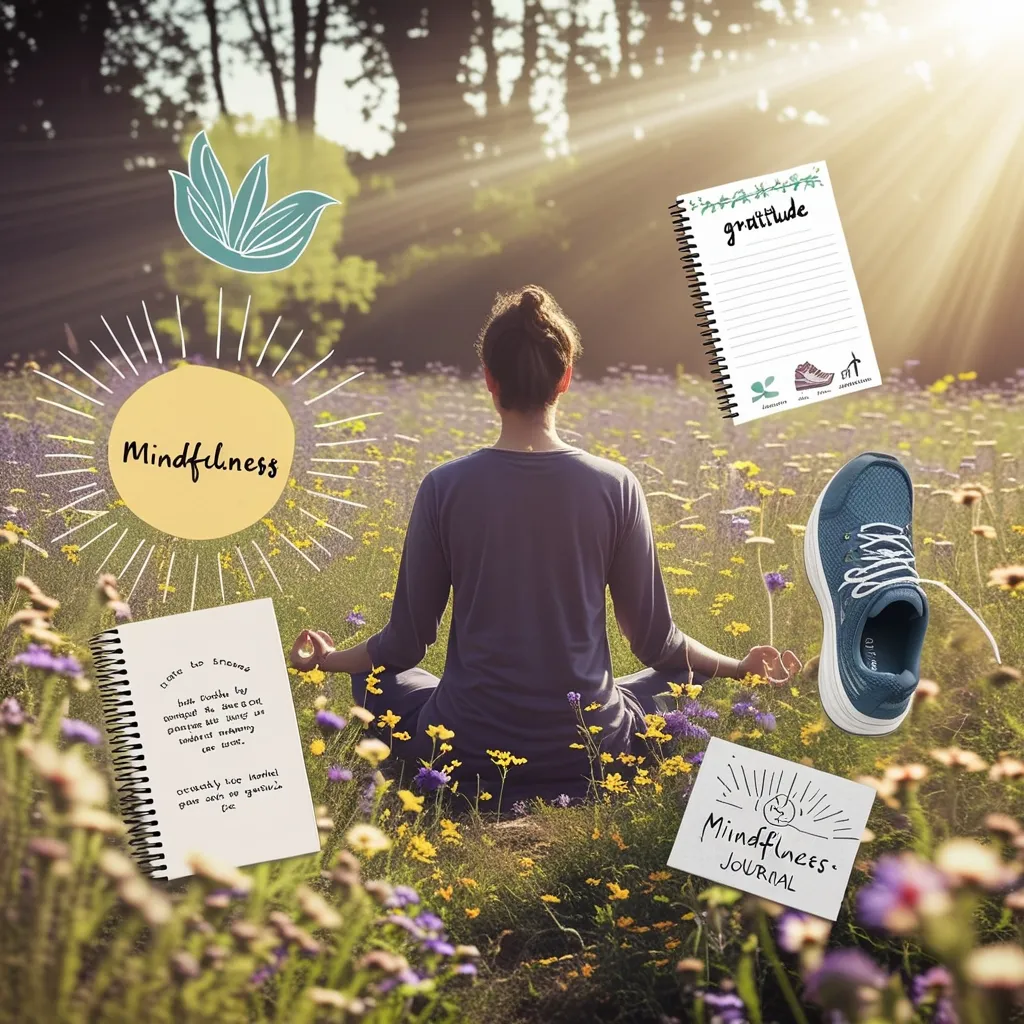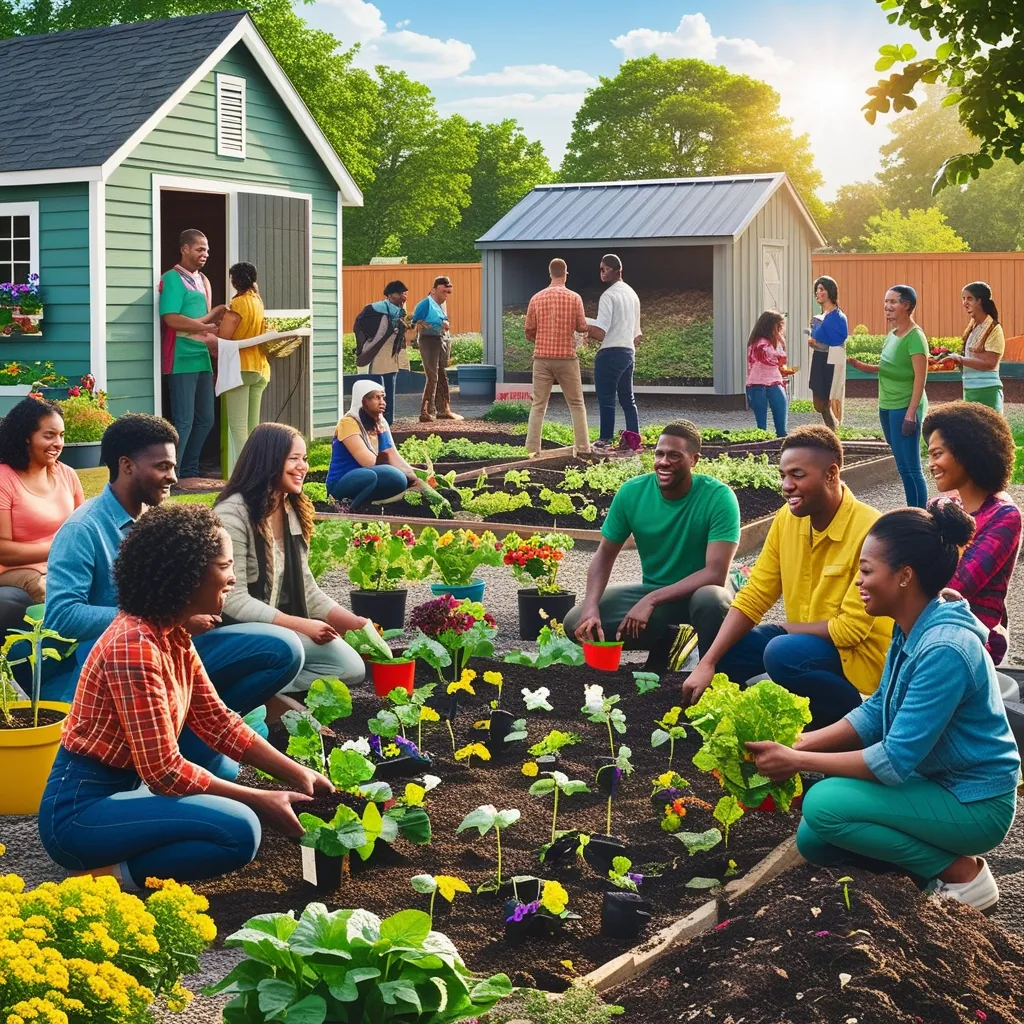Gratitude. It’s a word that gets thrown around a lot these days, but how many of us actually take the time to really practice it? Sure, we might say “thank you” when someone holds a door open for us or when the barista hands over our morning caffeine fix. But practicing gratitude goes way beyond those fleeting courtesies. It’s about fostering a mindset that cherishes the tiny marvels we often overlook.
Why Gratitude Is the Secret Sauce
Ever notice how your mood shifts when you focus on the good stuff? That’s the magic of gratitude. It’s like flipping a switch in your brain from negative Nancy to positive Patty. When you zero in on the good things in your life, even the tiniest ones, you’re essentially training your brain to be happier. Say goodbye to stress hormones like cortisol and hello to serotonin and dopamine, the chemical buddies that make us feel joy and pleasure. Take that flat tire, for example. Instead of cursing your luck, imagine being grateful for having the means to fix it, or better yet, friends who’ll drive you home. This simple shift can work wonders for your sanity.
Mental Health Bootcamp Through Gratitude
Gratitude isn’t just good vibes. It’s practically a superpower when it comes to mental health. People who make it a habit to practice gratitude report feeling less depressed and anxious. They tend to be more satisfied with their lives and have higher self-esteem. We’re talking about changing your entire outlook, and it doesn’t even take much. Even just 15 minutes of gratitude practice five days a week can create a noticeable shift in how you see the world.
Chill Out by Being Grateful
Anxiety often drags you to places you don’t want to visit—either rehashing the past or worrying about the future. Gratitude acts like an anchor to keep you grounded in the present. When you’re mentally listing things you’re thankful for—the warm cup of coffee in your hand, the stranger’s smile, the meal that nourished you—you snap that chain of negative thoughts. This can activate your parasympathetic nervous system, the body’s natural de-stressor, helping you to relax and carry on with a lower blood pressure and a reduced heart rate.
Better Zzz’s with Gratitude
Another bonus? Sleep! The more you practice gratitude, the more likely you’ll have better-quality sleep. Those who practice gratitude often lean towards habits that improve sleep, like eating well and exercising. Imagine hitting the pillow, not with a brain full of worries, but with pleasant thoughts about your day. It’s a simple way to fall asleep faster and enjoy better sleep all night long.
Heartfelt Thanks for Heart Health
Your heart might benefit even more than your head. Gratitude can actually lead to a healthier heart. Lower rates of depression and anxiety, coupled with better sleep and healthier lifestyle choices, can significantly lower your risk of heart disease. Studies even show that keeping a gratitude journal can drop your diastolic blood pressure—a crucial marker for heart health.
Practical Gratitude Hacks
Getting into the habit of gratitude isn’t rocket science. Here are some super simple ways to start:
- Jot It Down: Dedicate a journal or even just a scrap of paper to jotting down what you’re grateful for each day. It’s like a quick mental workout that pays off big time.
- Pause with Purpose: When you say “thank you,” give it a second to really settle in. Think about why you’re thankful and take it to heart.
- Mental Jujitsu: When you catch yourself spiraling into negativity, counter those thoughts by focusing on something positive in the situation.
- Spread the Love: Share your gratitude with those around you. It could be a simple “thank you” note or saying aloud what you appreciate during a family meal. This not only boosts your happiness but can create a wave of positivity around you.
Making Gratitude a Habit
Like any other habit, building a gratitude practice takes some time and effort, but it’s totally worth it. Start by paying more attention to your “thank you” moments and reflecting on what you’re genuinely grateful for. Over time, this will become second nature, and you’ll find yourself noticing the good things in life without even trying.
How Gratitude Rewires Your Brain
Want some science to back it up? Research indicates that gratitude can actually rewire your brain. Practices like writing gratitude letters or counting your blessings can reinforce a positive recall bias. This means you get better at noticing the good stuff, even when life’s throwing you curveballs. One study found that people who jotted down three positive things at the end of each day were significantly happier and less depressed—even six months later.
Daily Gratitude Go-Tos
Incorporating gratitude into your life can be as easy as dedicating a few minutes each day to reflect on the good things. Whether it’s first thing in the morning or just before bed, this small act can have a considerable impact. Enjoy those moments of reflection, they’re more powerful than you think.
The Gratitude Ripple Effect
Gratitude doesn’t just benefit your mental and physical health—it also perks up your social life. Sharing your gratitude with others fosters stronger relationships. When you express what you’re thankful for, you encourage those around you to do the same, creating a cascade of positivity. This makes us more likely to share freely, offer emotional support, and be willing to forgive.
Wrapping It Up
Practicing gratitude daily isn’t just a feel-good trick; it’s a transformative way to improve your life. From reducing anxiety and stress to boosting your heart health and improving your sleep, gratitude packs a punch. Plus, it’s a habit that’s simple to adopt and can bring about significant, lasting changes. Start small, but be consistent, and watch how this practice changes your outlook and warms your interactions with others. Take a breath, look around, and appreciate the good stuff. You’ll be surprised at how much it can lift you up.
Ready to try it out? You might just find that a little gratitude goes a long, long way.






